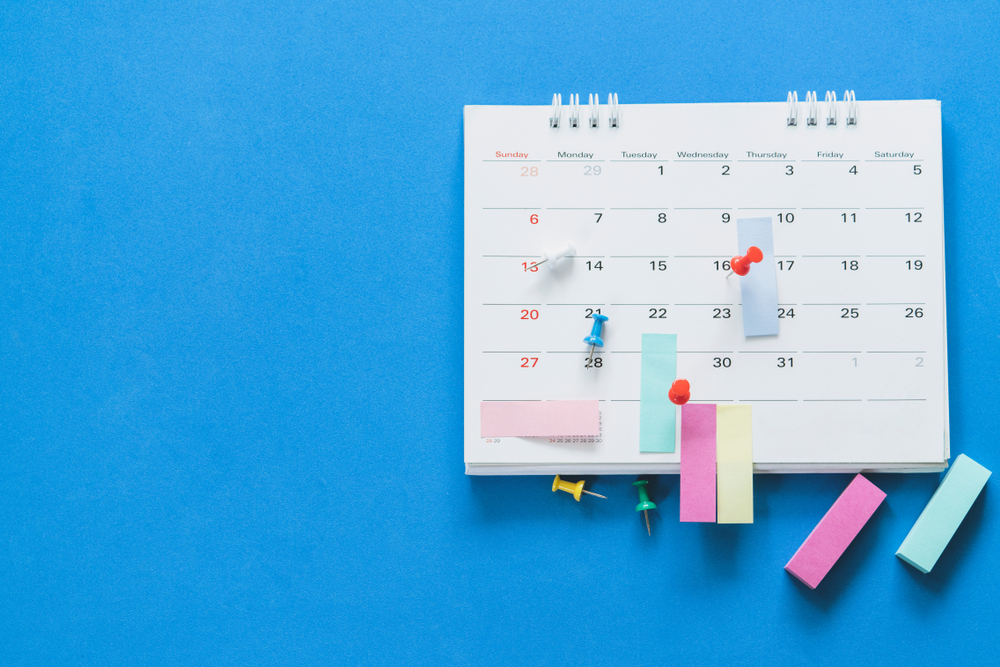It’s no secret that taking time off is good for us. An American Psychological Association survey found that nearly 70% of workers experienced an increase in positive mood and energy after taking vacation time, and researchers have found that individuals who take time off experience lower rates of depression.
But while most workers take PTO during the year, many find it difficult to fully unplug. With the constant chiming of email notifications on our phones and a full workload to return to, it can be challenging to mentally disconnect and fully unwind, even on vacation. But when we’re constantly thinking about work, worrying if our teammates are OK, and checking our phones to see what we’re missing, we don’t get to reap the benefits of our time off.
If you need some help fully unplugging on vacation and setting your team up for success, try these tips the next time you take PTO:
Draft a mindful and specific OOO message.
Out-of-office messages are often short, sweet, and to the point, but it’s worth putting more thought into them to save ourselves (and our colleagues) extra stress. Vivian Garcia-Tunon, an executive coach and human resources leader, tells The New York Times that the wording of your out-of-office message will largely depend on your industry, company culture, and audience. Garcia-Tunon recommends asking your manager or colleagues about what your company considers to be an appropriate response, in order to avoid drama and ensure your message aligns with your company’s values. A message that is both mindful and specific might look like this: “Thank you for your note, but I’m currently unavailable as I’ll be unplugging and recharging in [detail]. While I spend my time [detail] instead of looking at screens, you can reach out to [name] at [email] or [phone number].”
Delegate work in advance.
Few things can cause more stress during your well-deserved vacation time than knowing you will return to an overflowing inbox or an endless to-do list. Time off is meant for unplugging and recharging, but giving yourself permission to do so can be tough when there’s unfinished business at work. At least a week or two before your time off, meet with your manager to discuss a plan for who will be taking care of any pressing work when you’re out, and then chat with any team members taking on that work to make sure they feel prepared. If you have any direct reports, be sure to clarify what can wait until you return, and what can’t. Taking that time before you go to tie up loose ends in a strategic way will make your out-of-office time far less stressful.
Take email off your phone.
It can be tempting to look at your inbox on vacation, but even a quick peek can detract from your ability to recharge. A 2018 study from Virginia Tech showed that expectations to check email during non-work hours can result in stress and anxiety, and as Katie Denis, the chief of research and strategy for the Project: Time Off initiative, writes for Harvard Business Review, “Every email sent by a vacationing employee is a tiny cultural erosion: a signal to other employees that time off isn’t really time off.” To eliminate the temptation, consider removing your email app from your phone entirely. Your inbox will still be there when you get back, and checking it while you’re on vacation will only add to your stress.
Give yourself permission to turn off.
Many of us are unable to relax on vacation because we feel guilty taking time away from work. But the truth is, you’re not doing your mental health any favors if you spend the day anxious about what’s happening at work, or guilty about taking time for yourself, Beth Scarlett, a registered psychotherapist and co-founder of work-life blog Balancing Bravely, tells Thrive. If you’re prone to feeling guilty in general, Scarlett suggests treating yourself like you would a close friend, or a colleague you know is a hard worker. If you can imagine yourself encouraging them to take a day to relax and recharge, grant yourself the same courtesy.
Schedule breaks your first day back.
Moments of relaxation don’t need to stop once you return to work. In fact, reserving time for breathing or other mindfulness practices can help you relieve stress and anxiety, according to physicians at Harvard Medical School. Furthermore, the Clinical Handbook of Mindfulness explains that mindfulness practices can improve sleep quality and focus, which can ultimately fuel your productivity in the workplace. Make a special effort to incorporate several mindfulness breaks during your first few days back to work — that way you won’t lose that sense of calm. A good way to do this is by simply bringing your attention to your breath. Agapi Stassinopoulos, an author and meditation expert, tells Thrive Global that taking five deep breaths — inhaling and exhaling through your nose for a total of eight counts — can reset your brain and help you feel more present. You can find a quiet corner, or even try doing this at your desk. Take your mindfulness break one step further by closing your eyes and contemplating the things you are grateful for; this will ultimately make you feel happier and more hopeful.
Follow us here and subscribe here for all the latest news on how you can keep Thriving.
Stay up to date or catch-up on all our podcasts with Arianna Huffington here.



